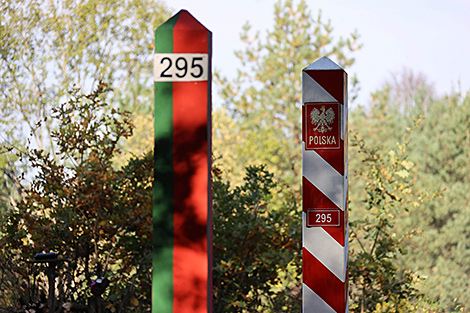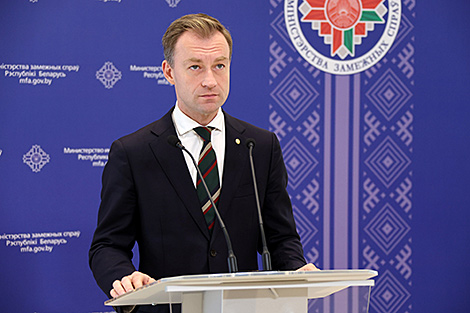Events
MFA: Belarus welcomes Poland’s decision to reopen two border checkpoints

An archive photo
MINSK, 15 November (BelTA) - Belarus welcomes the decision by the Polish authorities to reopen two border checkpoints, spokesperson for the Belarusian Ministry of Foreign Affairs Ruslan Varankov told the media following a meeting on the situation at the border with the European Union member states, which was held on the president's instructions, BelTA has learned.
The meeting was chaired by Prime Minister Aleksandr Turchin and State Secretary of Belarus’ Security Council Aleksandr Volfovich. The meeting was also attended by Minister of Foreign Affairs Maxim Ryzhenkov, head of the State Border Committee Konstantin Molostov, chief of the State Customs Committee Vladimir Orlovsky and head of the State Security Committee Ivan Tertel.
“Belarus consistently calls on its European neighbors to restore the previous border operation regime in the interests of ordinary citizens and cross-border cooperation. Against this backdrop, we welcome the decision by the Republic of Poland to reopen the two checkpoints on the Belarusian-Polish border for the movement of people, vehicles, and goods. This decision will have a positive impact, primarily on cross-border trade,” Ruslan Voronkov noted.

The MFA statement notes that this step demonstrates Poland's constructive approach aimed primarily at addressing the concerns of its own citizens.
“Unfortunately, we do not observe a similar approach from the Lithuanian authorities, who continue to ignore the interests of their own citizens,” Ruslan Varankov noted.
As it was reported earlier, the Polish authorities intend to resume cross-border traffic on 17 November via two border checkpoints with Belarus in Bobrowniki and Kuznica, which were closed in previous years. The relevant order was issued by Polish Minister of the Interior and Administration Marcin Kierwiński. On the Belarusian side, these are the Bruzgi and Berestovitsa checkpoints.
On 17 November, the Polish side will reopen the Kuznica checkpoint for passenger cars and buses. The Bobrowniki checkpoint will process passenger cars, buses, and trucks from EU countries and Switzerland.







 print version
print version make home page
make home page add to bookmarks
add to bookmarks

